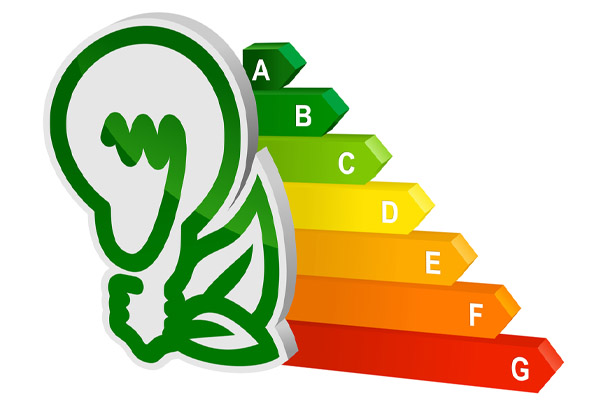How AFUE Ratings Factor Into Your Home Energy Bills

Energy Star reports that 50 percent of the average home’s total energy costs can be attributed to its cooling and heating system. As such, one easy way to cut your spending in this area is to make strategic decisions concerning how you maintain, repair, and replace your furnace or air conditioner. For your home heating system, it’s important to familiarize yourself with AFUE as it directly impacts your energy use and your energy costs. Following are several things to know about AFUE ratings.
What an AFUE Rating Is
Contents
- 1 What an AFUE Rating Is
- 2 Finding the Right Furnace for Your Home by Calling Miller Oil Company
Created by ASHARE or the American Society of Heating, Refrigeration and Air Conditioning Engineers, AFUE ratings stand for Annual Fuel Utilization Efficiency, and they’re calculated as a percentage and measure the efficiency of furnaces, boilers, water heaters, and other heating systems. An AFUE rating can be basically defined as the ratio of heat that a unit produces in relation to the amount of fuel or energy that it ultimately consumes.
Thus, to determine the AFUE rating for your heater, you would divide the amount of fuel that it used by the amount of heat that it generates, which is likely expressed in BTUs or British Thermal Units. For instance, if your furnace has an AFUE rating of 85 percent, this means that it uses 85 percent of the energy that it consumes to produce heat, and the remaining 15 percent is lost throughout the system, whether via chimneys, flues, or burners. It’s vital to note that AFUE ratings do not account for heat losses that occur in HVAC ductwork or pipes. The amount of heat lost in HVAC ducting and pipes can actually be quite significant. According to the United States Department of Energy (DOE), HVAC ductwork in attics, garages, and other areas that are not temperature-regulated can account for approximately 35 percent of a heater’s energy loss.
High Energy Ratings & Efficiency
Heaters with high energy ratings usually have high levels of energy efficiency, and energy-efficient heaters usually have high AFUE ratings. Essentially, a high AFUE rating will lead to lower energy costs. Another thing to understand is that electric heat pumps do not have applicable AFUE ratings for heat modes. Instead, they have HSPF ratings or Heating Season Performance Factor ratings. Currently, the natural standard measurement used by the DOE for determining the efficiency of combustion heating systems is the AFUE rating.
To help promote energy efficiency throughout the nation, minimum AFUE ratings are set by the DOE for gas-powered heating systems at 80 percent for the Southwest region and 90 percent for the Northern region. As such, nearly all new furnaces currently on the market have AFUE ratings of 90 percent or higher.
Tips for Finding a Heater’s AFUE Rating
To assist consumers in making informed buying decisions, furnace and boiler manufacturers are required by the Federal Trade Commission (FTC) to supply AFUE ratings for all models produced. This is information that a lot of heater manufacturers record right on the EnergyGuide label – the yellow tag that almost all electric appliances have. If you are unable to locate this label or do not see an AFUE rating printed on it, check the owner’s manual for the model or visit the retailer’s or manufacturer’s website. Remember that heating systems tend to lose efficiency as they age. Thus, the AFUE rating that has been printed by the manufacturer will eventually be much higher than the actual efficiency of the equipment you’re using. This is why it is best to have the AFUE rating of your home heating equipment measured by a licensed HVAC technician.
What Is Considered a Reasonably Good AFUE Rating?
The DOE states that good AFUE ratings are at least 80 percent or higher for the Southwest and 90 percent or higher for homes within the Northwest portion of the nation. However, heating systems are known to become increasingly less efficient as they move closer to the end of their lifespans. In reality, old or underperforming heaters may have AFUE ratings that range between just 56 percent and 70 percent. DOE standards make it necessary for all near heaters to have AFUE ratings of 78 percent or higher.
According to the AFUE rating system, heaters with AFUE ratings that are less than 80 percent are low-efficiency, mid-efficiency boilers and furnaces have AFUE ratings that range between 80 and 89 percent, and systems that have AFUE ratings of 90 percent or higher are considered high-efficiency. Given the inherent inefficiencies of all furnace types, such as distribution and firing losses, the absolute higher AFUE rating cap at about 97 to 98.5 percent.
What Can Homeowners Do With AFUE Ratings?

AFUE ratings let homeowners know just how efficiently a furnace is able to operate. It is a known fact that furnaces and boilers become less efficient as time goes on, and this means that inefficient and older heating systems have AFUE ratings that are on the low side. Prior to 175, there were no minimum AFUE ratings within the United States for heating units sold. The minimum AFUE rating for these appliances was established by the DOE in 1987 at 78 percent and then increased in 2015 to 80 percent.
Furnaces that are 15 years old or greater tend to be inefficient and costly to run. Replacing these older models even with low-efficiency options that have AFUE ratings of just 80 percent can result in noticeably lower home energy bills. For additional savings, you can purchase a furnace that has a higher AFUE rating. The most energy-efficient heater that you can currently find will have a maximum AFUE of about 98.5 percent. The AFUE rating of the heater you choose will have a noticeable impact on your energy costs and on your ongoing carbon footprint.
Is Buying a High-Efficiency Furnace for My Home a Good Idea?
There are several factors to think about when answering this question. First, you have to think about where your home is located. If you happen to live in an area that’s very cold and rely on your furnace almost daily during the winter months, a high-efficiency model will be the right choice because it will provide substantial energy savings over time. High-efficiency furnaces can be as much as 18.5 percent more efficient than low-efficiency furnaces. Figures derived from several studies show that households within the nation spend approximately $600 more to heat their homes each year. With a high-efficiency system, you might save up to $111 annually.
Next, you have to think about how much you’re able to spend on furnace replacement. You’ll pay about $1,000 more to get a high-efficiency furnace than you spend on a furnace with an AFUE rating that designates it as medium-efficiency. However, furnaces tend to last between 15 and 20 years. If you save $111 each year for at least 15 years, your total energy savings will be about $1,600. Over time, you can recoup your investment and more.
High-Efficiency Furnaces Have Impressive Features
Furnaces with high AFUE ratings tend to include some of the most cutting-edge features and technologies to provide unparalleled performance. Among some of the most impressive features that you can find on these systems are:
- Secondary heat exchangers
- Variable-speed blowers
- Direct-spark ignitions
- Better air filtration
Conclusion
The efficiency of home heating systems is determined by their AFUE ratings. The DOE uses AFUE ratings to establish minimum efficiency standards for furnaces. Every furnace within the nation must have an AFUE rating of at least 80 percent.
Finding the Right Furnace for Your Home by Calling Miller Oil Company

Hartford County, Connecticut locals can always expect superior HVAC services and recommendations from Miller Oil Company. This is because the technicians on our team have the absolute best certifications and training. They are knowledgeable, seasoned, and capable of meeting your needs.
Working with Miller Oil Company is also an excellent way to limit your spending on heating and cooling services. We can provide maintenance services to improve the efficiency of the heating equipment you currently have. When you’re ready to start shopping for your options in furnaces or boilers, we can also help you find one with a high AFUE rating at an affordable price. Best of all, we’ll be sure to back our work up with a guarantee you can rely on. Call Miller Oil Company right away to set up an appointment. We can give you an in-home estimate at no cost.
Click here to contact us today or give us a call at (860) 745-0326 if you have any questions.